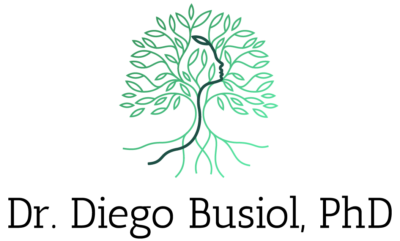In an age increasingly focused on mental health, the term “narcissist” is often misused as an insult—a disparaging label synonymous with “bad person,” “egotist,” or “manipulator.” This simplification is harmful, preventing individuals (and those who love them) from seeking help. Narcissistic personality traits are complex, with nuances and varying degrees of severity. Ignoring the underlying vulnerabilities promotes judgment and, paradoxically, confirms the narcissist’s assumptions. The indiscriminate use of this term should give us pause.
This misuse is especially concerning in an era striving for mental health awareness and destigmatization. The stigma of narcissism further harms those struggling with these traits, contributing to negative perceptions and preventing help-seeking. Interacting with someone with strong narcissistic traits can be incredibly challenging and even damaging.
The Hidden Side of Narcissism
There’s often a misunderstanding of what drives narcissistic behavior. While it’s crucial not to excuse hurtful actions, it’s equally important to recognize that beneath the arrogance and difficult behaviors, there’s often deep insecurity and anxiety. We need to move beyond simply reacting to the surface behaviors if we want to understand the underlying dynamics. Here’s why this oversimplified and weaponized use of “narcissist” is harmful:
- Prevents Help-Seeking: When “narcissist” becomes an insult, people are less likely to recognize and address these traits in themselves or loved ones. The fear of judgment outweighs the potential benefits of therapy.
- Obscures the Nuances: It ignores the spectrum of narcissistic traits and the varying degrees of impairment they can cause. It overlooks the underlying vulnerabilities and pain—often rooted in early childhood experiences—that contribute to narcissistic behaviors. This lack of understanding fosters judgment rather than empathy.
- Reinforces Negative Assumptions: Ironically, the judgment and stigma associated with narcissism can confirm the narcissist’s own negative beliefs about themselves and the world, further isolating them and hindering their potential for growth.
Moving Towards Understanding (and Real Change)
To move beyond these simplistic and inaccurate portrayals, we need to recognize the full complexity of narcissistic dynamics. Understanding what narcissism really is, what its possible origins are, and how it can cause suffering allows for new possibilities—both in individual transformation and in relationships.
But meaningful change is possible only if each person is willing to actively engage in the process. Especially in more severe cases, this journey can be complex and require significant time and commitment. Psychoanalytic work can support this path, but—as always—everyone has their own pace, and the process may be challenging.
The point of understanding is not to excuse or justify, but to open up the possibility of doing something different. Naming and recognizing these dynamics is not a condemnation; it can be a way to make sense of how one has tried to deal with inner suffering, often unspoken or unconscious. By addressing these deeper issues, new ways of relating—to oneself and to others—can emerge.
Creating Space for Change
Instead of using “narcissist” as a weapon, let’s try to understand what narcissism is, what its possible causes are, when it causes suffering, and how this condition of suffering can be overcome. Let’s create a space where seeking help for narcissistic traits is seen as a sign of strength, not a source of shame.
If you want to explore narcissism more deeply, you may find these articles helpful:
• What is Narcissism? Understanding the Basics and Beyond — https://diegobusiol.com/what-is-narcissism/
• Narcissism: The Illusion of Wholeness — https://diegobusiol.com/narcissism-the-illusion-of-wholeness/
• Narcissism: Underlying Dynamics and Early Experiences — https://diegobusiol.com/narcissism-underlying-dynamics-and-early-experiences/
• Am I Special or Replaceable? Understanding the Quest for Validation — https://diegobusiol.com/am-i-special-or-replaceable/
• The Narcissist: Being vs. Appearing — https://diegobusiol.com/the-narcissist-being-vs-appearing/
• Narcissism and Relationships: The Lonely Throne — https://diegobusiol.com/narcissism-and-relationships-the-lonely-throne/
• Therapeutic Approaches to Narcissism (Part 1) — https://diegobusiol.com/therapeutic-approaches-to-narcissism-part-1/
• Therapeutic Approaches to Narcissism (Part 2) — https://diegobusiol.com/therapeutic-approaches-to-narcissism-part-2/
If you would like to explore these issues further—whether you recognize aspects of narcissism in yourself or in someone close to you—consider reaching out for professional support. Each journey is unique, and taking the first step can open the way to new possibilities.

